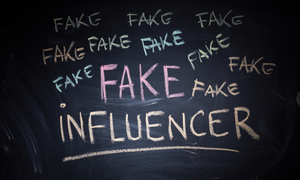Sign up for our free daily newsletter
YOUR PRIVACY - PLEASE READ CAREFULLY DATA PROTECTION STATEMENT
Below we explain how we will communicate with you. We set out how we use your data in our Privacy Policy.
Global City Media, and its associated brands will use the lawful basis of legitimate interests to use
the
contact details you have supplied to contact you regarding our publications, events, training,
reader
research, and other relevant information. We will always give you the option to opt out of our
marketing.
By clicking submit, you confirm that you understand and accept the Terms & Conditions and Privacy Policy
New York’s attorney general Letitia James has stated she has resolved a probe into a group of Colorado companies which sold fake followers, ‘likes’ and views on social media platforms. It is the first US settlement to judge such sales as illegal deception.
Deception
Devumi LLC and other companies owned by German Calas generated some $15 million of revenue between 2015 and 2017 through selling around 250,000 fake endorsements and engagement for platforms including LinkedIn, Pinterest, SoundCloud, Twitter, Vimeo and YouTube. Devumi and its affiliated Denver-based entities dissolved last August and September following the investigation opened by the predecessor of Ms James, and a New York Times article last January which described some of Devumi’s alleged conduct. Ms James said the endorsements from computer-operated ‘bot’ accounts, pretending to express authentic opinions of real people, deceived social media users by making those endorsed appear more popular or influential. She said it also deceived the online platforms that prohibited such activity. Devumi’s customers comprised various professionals including actors, athletes, business people, marketers, musicians, politicians, pundits and adult porn stars. Ms James said Calas’ companies might charge $3,997 for up to 500,000 Twitter followers, or $30 for 250 likes on YouTube. Calas denied that Devumi sold fake followers and said he did not know about social identities stolen from real users, the Times said.
Clear message
Ms James explained, ‘bots and other fake accounts have been running rampant on social media platforms, often stealing real people’s identities to carry out fraud.’ Ms James stated, ‘we are sending a clear message that anyone profiting off of deception and impersonation is breaking the law and will be held accountable.’ The settlement prohibits similar future conduct, and prevents Calas from publicly denying James’ findings. The settlement did not address whether the customers did anything illegal, and the settling parties will pay $50,000 to cover costs of the New York investigation.
Email your news and story ideas to: [email protected]





